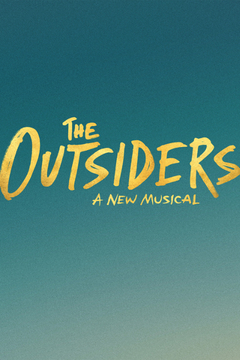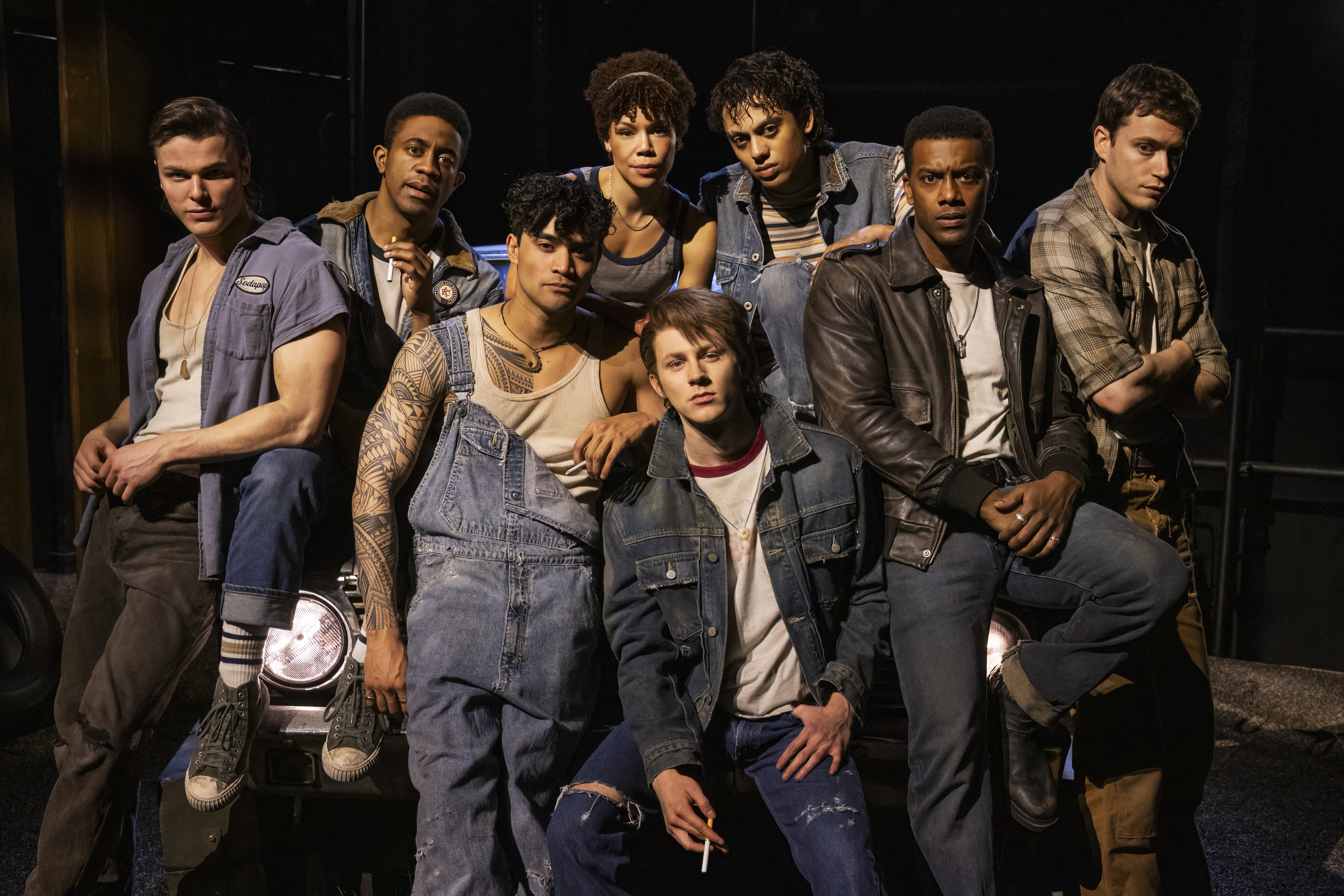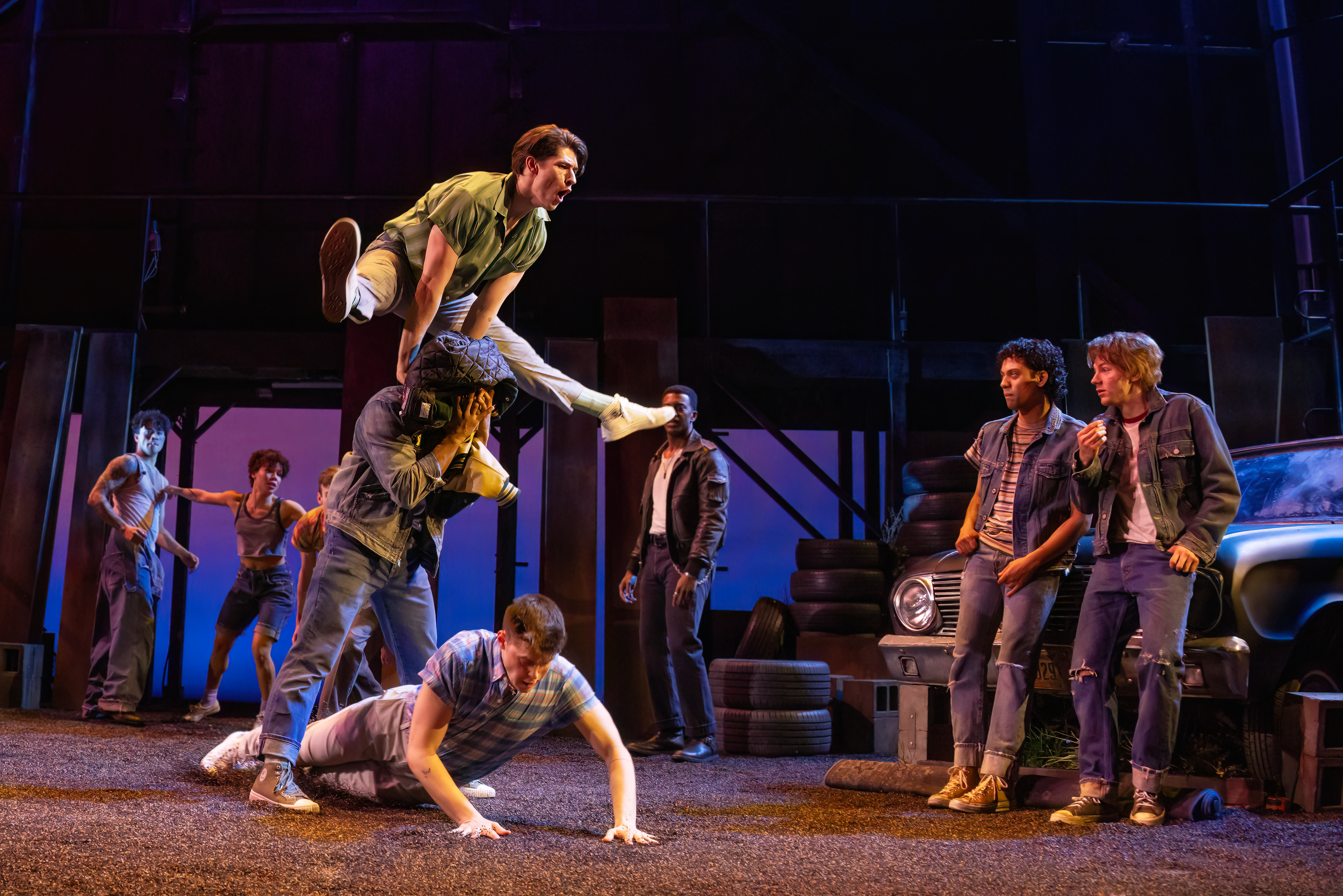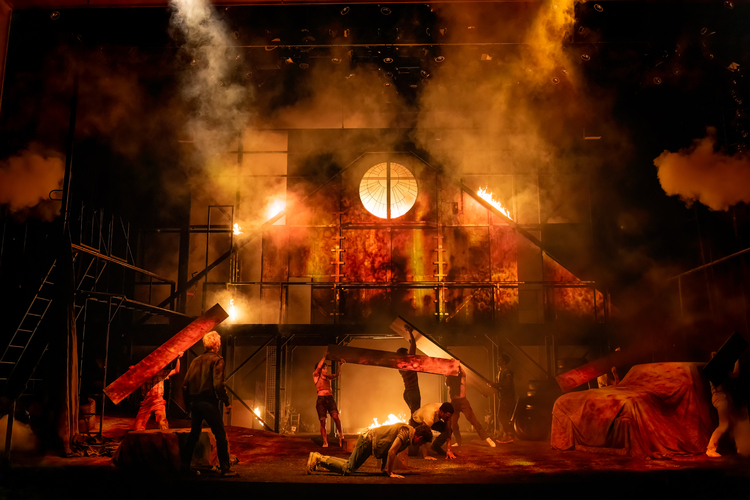Interview: Director Danya Taymor Makes Broadway Musical Debut with THE OUTSIDERS
Taymor discusses the significance of having a woman director for a story centered on male experiences, working with cast members who are making their debuts, and more.
 |
|

Director Danya Taymor, whose work includes the Broadway production of Antoinette Chinonye Nwandu’s Pass Over, Will Arbery’s Pulitzer Prize finalist Heroes of the Fourth Turning Off-Broadway, Jeremy O. Harris’ Daddy in the UK and Off-Broadway, and much more, is taking on her first musical ever with The Outsiders.
Currently playing at Broadway's Bernard B. Jacobs Theatre, The Outsiders is based on the influental novel by S.E. Hinton (1967) and Francis Ford Coppola’s iconic film (1983).
BroadwayWorld spoke with Danya Taymor about the process of adapting the well-known novel and film for the stage, and much more.
This is the first Broadway musical you’ve directed. What has that experience been like, and did you approach the process differently than if you were directing a straight play?
It is not just my first Broadway musical, but the first musical I have ever done, which is amazing. I had the great luck of doing this out of town at La Jolla Playhouse. And I think I was able to discover through the development process, and out of town, that it’s just like a play times one thousand. So, in some ways I’m approaching the material in the same way I would any new play, working really closely with the writers, helping them find what is the truest version of what they want to see, but what is different is the number of collaborators that you have. I feel like it’s much less lonely than directing a play, because you’ve got choreographers, you’ve got music direction. There’s a lot more collaboration along the leadership level. But, in terms of trying to bring the material forth, I feel like I’ve brought a lot of what I bring to plays to the musical as well.
Did you go into the process, with it being your first musical ever, with any preconceived notions? And were you surprised by anything? Or were you just openminded?
It definitely rocked my world. I loved musicals as a kid. I think for so many of us, it’s our first entryway into theatre, and I think that’s why it feels so special to be making one, because for so many people it’s the most accessible way into the theatre. The form of musicals really inspires me. Of course, there are many different ways to do a musical, but just the intersection of book with music and movement fascinates me. I think I’m a director who is really intrigued by the structure of any new piece of work, or a classic piece of work. A musical is just kind of an amazing, different way of approaching the form of theatre. So, I definitely came in openminded.
Justin Levine, who is one of the composers and co-book writer, he is this incredible walking depth of information about musicals, about the form, about the history, about the music itself, and he was such a key collaborator for me as I learned about it. And I went and saw a bunch of musicals. I really immersed myself in the form and tried to learn about it as I was making one for the first time.
What musicals did you see?
I probably watched everything that was on Broadway last year. I went back and watched Once, and Spring Awakening, I watched some filmed musicals as well. I watched All That Jazz and Cabaret. Anything out there just to inundate myself in all the different ways you could approach it.
What was the process like for you in taking a work that’s so well known, both the book and the movie, and shaping it for the stage?
Of course I knew what The Outsiders was, but I had the great luck that when I was approached about the project, I had not read the book, nor had I seen the film. So, I was able to read the book of the musical and experience the score first. And then I went to the source material and spent a lot of time in it. And I think that was actually a gift, because I could meet the musical on its own terms and let it in inspire me. And then when I went back to the book especially, I became really inspired by how the emotionality of the book, and the youth of the book, intersect with this form, and the way that performers might interact with it. And then, most importantly was I got to go to Tulsa, where Susie Hinton who wrote the book is from, early in my process, two years ago. And she said, “The characters are the characters, of course, but have a vision.” And that really freed me to want to invest everything in it, and try to make it an adaptation, not just try to make a carbon copy, because that would be literally impossible. And I think her blessing freed me in how I approached the adaptation.
That’s very cool to be able to have that experience with the original creator of the material.
Susie is the audience member I think about probably most often. I think about 14-year-old Danya, and teenagers in general, and I think about Susie, and how old she was when she was writing it, and what her gaze was. She so wanted to be honest, and blunt, and real about what it felt like to be a young person growing up and dealing with violence, dealing with class, dealing with loss, and grief. And I think about her authenticity a lot as we work on this and try to bring that forth.
The Outsiders is a work that stars men and is centered on the experiences of men. And yet, the book is written by a woman, and the show is directed by a woman. I’m curious how it feels as a successful woman director to approach a work like The Outsiders and bring together those masculine and feminine viewpoints and experiences.
I’m the youngest, I’m the younger sister. And my brother and his friends were always around, so I grew up seeing boys in a lot of different ways, and I think it makes sense that now I’m here working on this show. I think what was so profound about what Susie did, and I think it’s why having a female director feels so right for the piece, is she has a gaze on these boys and young men that allows them to be rough, tough, brutal, but also soft and sensitive and vulnerable.
I think it’s a gift to be able to see boys and young men in this way, and it’s something that society does not encourage. It often looks down upon it. And I think that sort of limit on men and boys’ ability to express vulnerability, or softness, or tenderness, or loving feelings, is a detriment to society. And so, it makes sense to me that, whether she knew it or not, part of what she was doing is saying, ‘It’s okay to be everything. It’s okay to be all of these things. It’s actually necessary to let it out.’
In that sense, often people talk about the female gaze, but I think in art, it can come in lots of different forms. Female gaze doesn’t just mean you’re looking at a female experience. So even though this show is about boys, I’m a woman, so it’s through my gaze, definitely, and I’ll be curious how that hits the audience emotionally.
What has it been like working with this incredible cast? So many of them are making their Broadway debuts.
Amazing. The casting process for this show has been intensive and has occurred over two years, to find the group that we finally have on Broadway. We looked for individuals who brought what makes them unique to the role, from the principal actors on stage to the folks who are covering them. When you come and see somebody who is going on for Pony or Johnny, they will have their own version, because they’ll be able to bring their individuality to it.
And because for many of them it’s their first Broadway experience, it’s a chance for me and the creative team to try to set a standard of what it can be like. How collaborative a space can be. That it can be playful. Yes, there is pressure, but it can be fun, yes, you can work really hard, but you don’t have to kill yourself. So, it’s been a real privilege to be their first director. And many of them have been in this since our first workshop nearly two years ago. So, the chance to grow something with people over time is always so special.
What would you like to say to audience members who are planning on seeing the show?
Come! It’s going to be visceral, it’s going to be deeply embodied, you’re going to feel. I don’t know what, because I think there is a lot of different ways for audiences to connect. But I think there is a powerful story. You’ll be taken in, you’ll connect with the characters, and I think it will resonate on a personal level for every single person who comes through the door.
Photo credit: Matthew Murphy
Videos





 Outsiders Logo Magnet
Outsiders Logo Magnet The Outsiders Unisex Stay Gold Pullover
The Outsiders Unisex Stay Gold Pullover The Outsiders Logo Beanie
The Outsiders Logo Beanie The Outsiders Unisex Logo Tee
The Outsiders Unisex Logo Tee